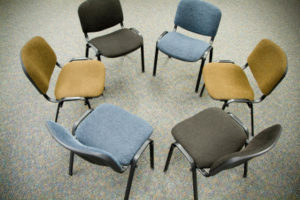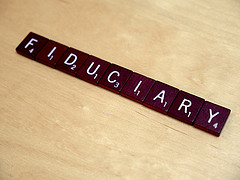While the great religious traditions teach the importance of compassion and reconciliation, what is often missing among the adherents of those traditions are practical ways of embodying compassion and striving for reconciliation. Restorative practices are increasingly being appropriated in local congregations as they offer effective mechanisms for compassionate communication and restoration of relationships.
PERSPECTIVES articles
Stuck!
by John Wimberly
Many congregations are stuck. Despite their members’ sacrifices and love, they just don’t seem to change. The same problems—building issues, financial problems, the same group doing all the work—seem impossible to solve. The intractable nature of these problems sucks the joy out of ministry. What should be energizing becomes energy-draining. What should put wind in the sails of members’ lives becomes a drag.read more…
Who Owns a Congregation?
When I ask members of a governing board about their job, someone (frequently a lawyer or a banker) often uses an obscure word that speaks rather deeply to the nature of the board’s role: “The board is a fiduciary.”
Leading in an Age of All-or-Nothing Conflict

Pastor Bethany feels like a punching bag. For the past decade her denomination has held wrenching debates at its national conference about how to respond to individuals in same sex relationships who desire to be ordained to ministry, and members of her congregation are increasingly losing patience with the “dialogue.” Polarization has set in and Pastor Bethany feels trapped in the middle.
Noticing – Unhurried, Unafraid Curiosity
by Sarai Rice
As I remember it, the first time I visited Ed in the nursing home, his bed included some kind of sling apparatus that helped the staff get him up and out of bed. I don’t think I ever saw it used, but it was certainly clear that he didn’t get out of bed often. He also didn’t respond very much when I talked with him, even though the family had assured me that he was still quite mentally sharp.
Working around Incompetence on the Team
We aspire to build staff teams of competent, motivated individuals who work in dogged pursuit of a clearly articulated vision. What most of us have are teams with some outstanding staff and some not so outstanding staff, working side by side towards a vision that seems clear, on some days.
The Return of the Urban Congregation
by John Wimberly
The urban congregation is back! At least, it appears to be on its way. For most of my forty years in ministry, people have talked about the demise of the urban congregation. In fact, many city churches have closed or been reduced to tiny memberships. However, much of what was working against urban congregations in the last part of the twentieth century seems to be working for/with urban churches in the first part of the 21st century.



